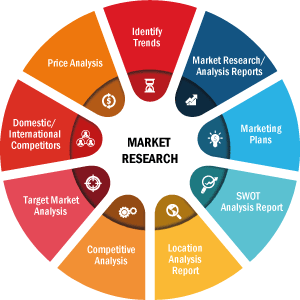Building Thermal Insulation Market: Key Insights
Building thermal insulation is a material or system used to reduce heat loss or gain in a building. It is typically applied to the walls, roofs, and floors of a building to improve energy efficiency and comfort. The market for building thermal insulation is driven by several factors, such as the increasing awareness of energy conservation, the need to reduce greenhouse gas emissions, and the growing construction industry.
The demand for energy-efficient buildings is increasing as governments and organizations around the world are implementing policies and regulations to reduce energy consumption and carbon emissions. This is further fueled by the rising awareness about the environmental impact of buildings, which is driving the market for building thermal insulation. Insulation materials are continuously advancing, and new materials are being developed that are more energy-efficient, durable, and cost-effective. The growing construction industry is also driving the building thermal insulation market for building thermal insulation as more buildings are being constructed. The adoption of green building codes is increasing around the world, which is driving the market for building thermal insulation. Additionally, the adoption of advanced insulation technologies is increasing as they offer better insulation performance and energy efficiency. Furthermore, the increasing demand for retrofitting existing buildings is also driving the market as it helps to enhance energy efficiency and decrease greenhouse gas emissions.
Building Thermal Insulation Market
Building Thermal Insulation Market Size and Forecasts (2021 - 2031), Global and Regional Share, Trends, and Growth Opportunity Analysis Report Coverage: By Product (Glass Wool, Mineral Wool, EPS, XPS, Others); Application (Roof, Wall, Floor); End-Use (Residential, Commercial) , and Geography (North America, Europe, Asia Pacific, and South and Central America)
Building Thermal Insulation Market Drivers [2021-2031]
Download Free Sample
Strict Norms Pertaining to Reduce Greenhouse Gas Emission to Drive Building Thermal Insulation Market
Strict norms and regulations to reduce greenhouse gas emissions have increased demand for building thermal insulation. These regulations are put in place by governments and organizations to promote energy efficiency and reduce the carbon footprint of buildings.
Additionally, governments around the world are offering incentives, such as tax breaks and rebates, to encourage building owners to improve the energy efficiency of their buildings. This helps to drive demand for insulation materials as building owners look for ways to meet these regulations and take advantage of these incentives.
As a result, the building thermal insulation market has seen significant growth in recent years. Insulation manufacturers are developing new, more efficient insulation products to meet the demand. The market is predicted to continue to increase in the coming years as regulations and incentives aimed at reducing greenhouse gas emissions continue to be implemented.
Building Thermal Insulation Market: Segmental Overview
The global building thermal insulation market is segmented on the basis of product, application, and end-use. Based on product, the market is segmented as glass wool, mineral wool, EPS, XPS, and others. On the basis of the application, the market is segmented roof, wall, and floor. The market, on the basis of the end-use, is bifurcated as residential and commercial.
Based on end-use, the commercial segment held a substantial share in the market. The commercial sector plays a significant role in driving the development of the building thermal insulation market.
One of the main ways that the commercial sector contributes to the growth of the insulation market is through the construction of new commercial buildings. As businesses look to expand and improve their operations, they often construct new buildings that are designed to be energy-efficient. This includes the use of insulation materials in the construction of the building, which helps to drive demand for insulation products.
In addition to new construction, the commercial sector also helps to drive the growth of the insulation market through the renovation and retrofitting of existing buildings. As building owners look to improve the energy efficiency of their buildings, they often turn to insulation as a cost-effective solution. This can include adding insulation to the walls, roof, and floors of a building, as well as upgrading existing insulation.
Overall, the commercial sector plays a significant role in driving the growth of the building thermal insulation market by creating demand for insulation products through new construction, renovation, and retrofit projects.
Building Thermal Insulation Market: Competitive Landscape and Key Developments
Paroc Group OY, Saint-Gobain S.A., BASF SE, Huntsman Corporation, Firestone Building Products Company, Cabot Corporation, Dow Corning Corporation, Atlas Roofing Corporation, Guardian Building Products, Inc., and Ursa among the key players operating in the Building Thermal Insulation market. These companies have a widespread presence worldwide, which provides lucrative opportunities to serve a large number of customers and expand the market.
Contact Us
Phone: +1-646-491-9876
Email Id: sales@theinsightpartners.com